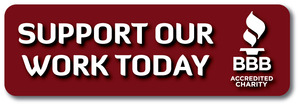Sign up for the ING newsletter to receive news and announcements.

Courtesy Steven D. Martin
By Islamic Networks Group (ING) Staff.
On Saturday, August 12th, we posted this brief statement on our Facebook Page:
“ING joins all Americans in shock at the violence and at least one death at the white nationalist rally in Charlottesville. Our deep condolences to the families of those hurt or dead — regardless of their ideology. The widening polarization in our country is lamentable, but as we witnessed today, it can be deadly. This should be a call to action for reaching across deep divisions with civility only after establishing a baseline of common humanity. We must remember core American principles of cooperation and commitment to the greater good and of concern for the “other” because we’ve all been the “other” at some point. We are stronger when we unite around these core American values.”
After reflecting on the events in Charlottesville and our country’s response, we have authored the expanded statement below.
ING Responds to Charlottesville Violence With Call to Know Your Neighbor
Like all Americans, the staff and volunteers at ING were shocked and horrified to learn of violence and fatalities at the white nationalist rally in Charlottesville, Virginia over the weekend. We offer our deep condolences to the families of those hurt or dead — regardless of their ideology. Heather Heyer, the young woman who lost her life at the hands of an even younger man, appears to be a citizen committed to social justice. And the Virginia State Police officers Berke Bates and Jay Cullen, who perished when their helicopter crashed while observing the rally, proved their dedication as public servants.
We like to place blame after public tragedies. The neo-Nazis and racists who — emboldened by tacit acceptance of their beliefs by far too many people in public office — organized the rally in a town that didn’t want them. The Black Bloc and Antifa counterprotesters who attacked and pepper-sprayed Confederate-flag-waving protesters, raising the general tension at the event. The Charlottesville and Virginia State police who stood by when things turned dangerous.
Ourselves, for letting things get to a point where hundreds of our fellow citizens felt it necessary to boldly and proudly declare that “Jews will not replace us” or “Blood and soil” or “America is for white people”. We, too, are complicit. We need to speak out (as the counterprotesters tried to do) with a prophetic voice against racism and xenophobia — but without dehumanizing and demonizing (let alone physically attacking) the human beings who are swayed by these attitudes.
Widening Polarization Impedes Rational Discourse
This widening polarization in our country dissolves friendships and family relationships and fractures communities across lines of difference. Perhaps worst of all, it impedes rational discourse about the problems that afflict our society. And as we witnessed in Charlottesville, when it involves hate groups calling for race supremacy, it can be deadly. But it doesn’t have to be this way. We don’t have to scream and beat and murder each other in the name of ideology. We can disagree without dehumanizing.
The events in Charlottesville should be a call to action for reaching out across our deep divisions with civility, especially with those whose views we find abhorrent. You can’t scan a major newspaper these days without reading a headline like “Racist meets with people he once hated, finds out they both love the same hobby.” We can and do change our minds about our fellow citizens but it takes commitment to both the means and the end. The means is respectful dialogue, which is critical in strong, pluralistic democracies like ours. The end is addressing differences of opinion and debating policy, but that can only happen after establishing a baseline of common humanity. Thankfully, humanity has often occupied itself with thinking about how to do that exact thing, even — or especially in — the face of violence or hate.
What Can We Do? Know Your Neighbor
Our Muslim staff members look to the Qur’an 49:13, which tells humankind that God has “made you into nations and tribes, that ye may know each other”. ING’s Christian staff members look to the Gospels for an answer and find it in Matthew 5:38-42 and Luke 6:27-31, which call us to “turn the other cheek” and to “love your enemies, do good to them which hate you”. And our agnostic staff members find the answer in the Golden Rule, present in all religious traditions: “Do unto others as you would have them do unto you.”The need for active dialogue won’t go away anytime soon, and the Know Your Neighbor program, a nationwide coalition of faith- and community-based organizations, social justice campaigners, and civil rights activists, has committed itself to this task. The eighty-two members of the coalition based across all fifty United States provide tools, educational programs, interfaith training, dialogue resources, and in-person opportunities to strengthen our social fabric by relating to each other in simple ways. Visit our site to join the effort.
The name of the coalition is itself as a call to action. We must, simply, know our neighbors. When we refuse to reach out across lines of difference and isolate ourselves in our respective silos of race, class, ethnicity, religion, or political affiliation, we give our own tacit acceptance to the viewpoints that let tragedies like the rally in Charlottesville unfold.
We must remember core American principles of cooperation despite division, of commitment to the greater good, and of concern for the “other”. That last point is critical, because at some point in our history, we were all the “other” to someone else. We’re calling everyone to know your neighbor. We are stronger when we unite around these core American values.
Join us on Facebook and Twitter to continue the conversation.

